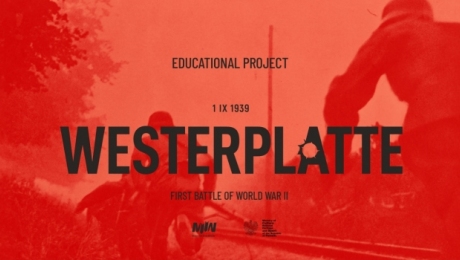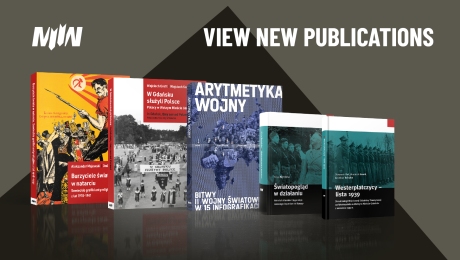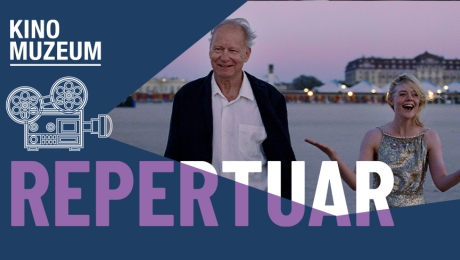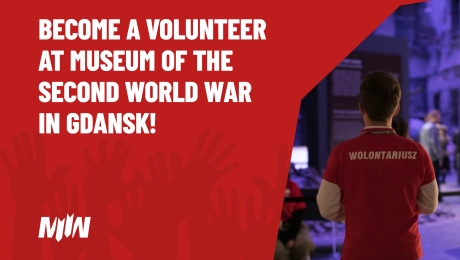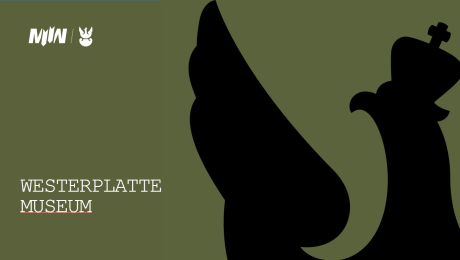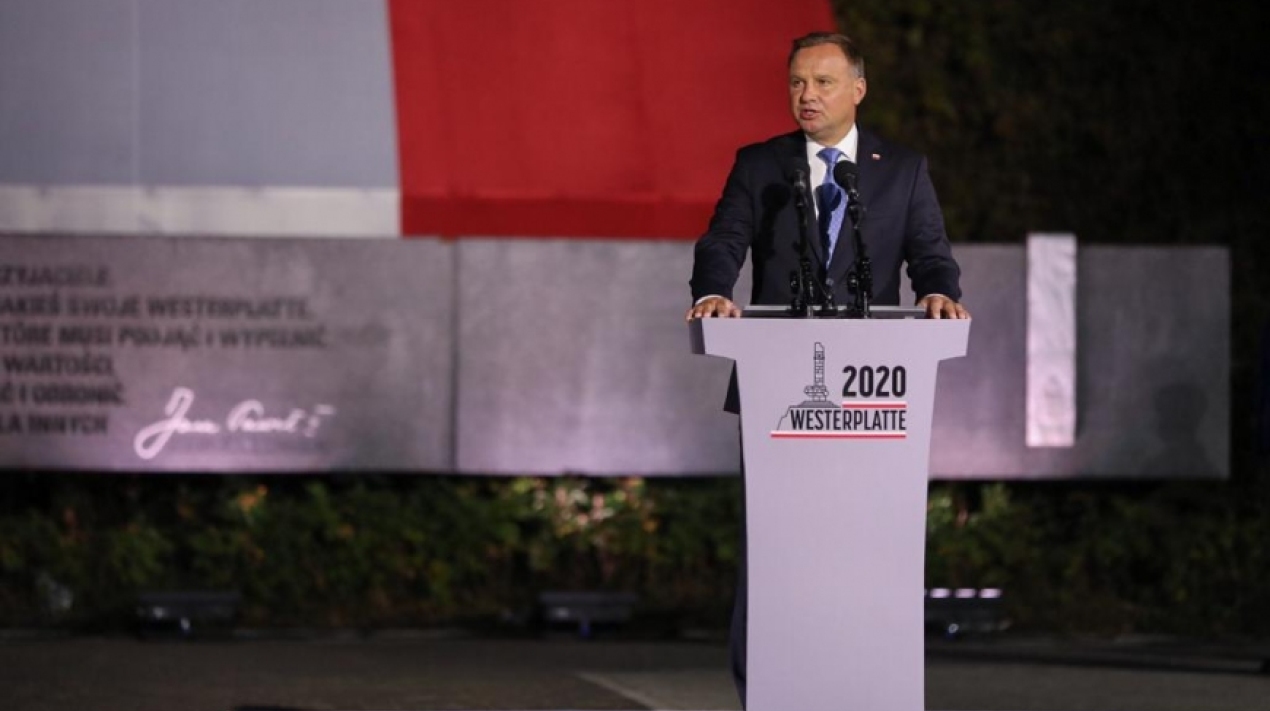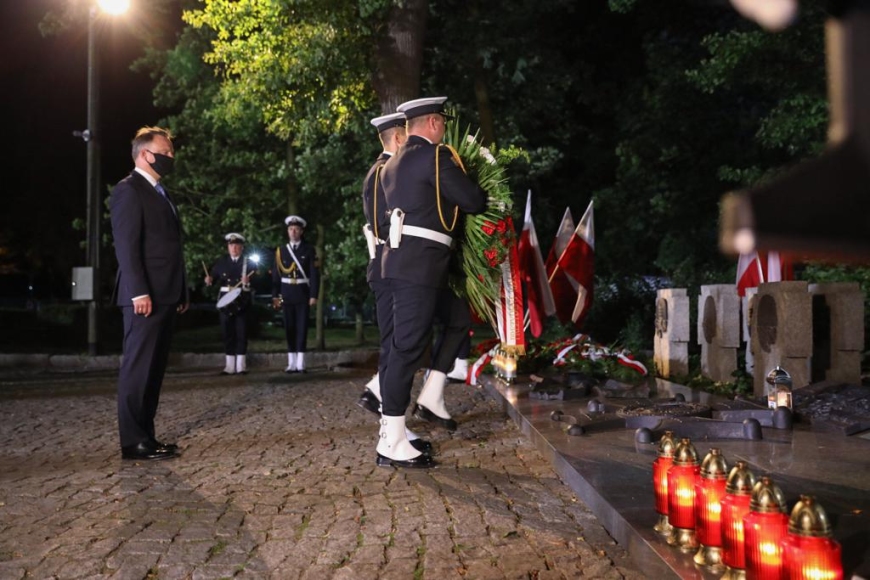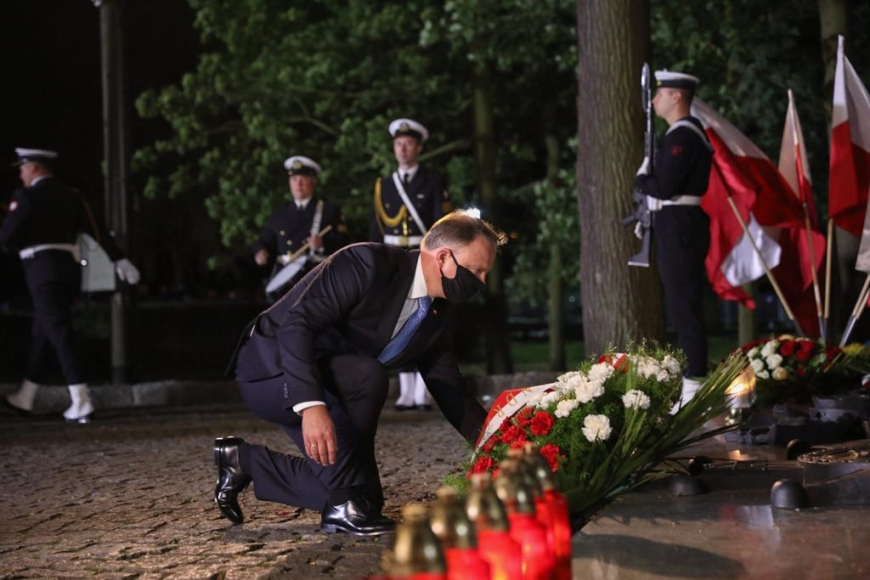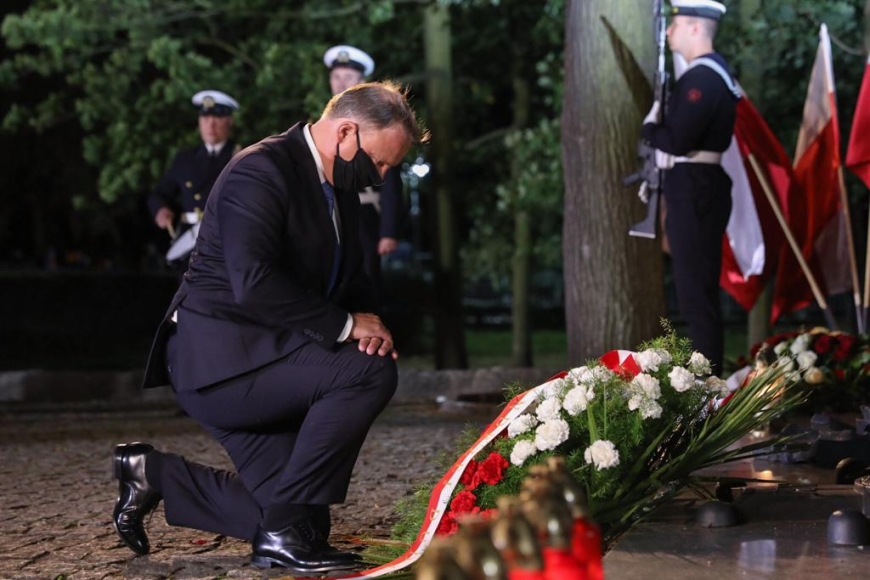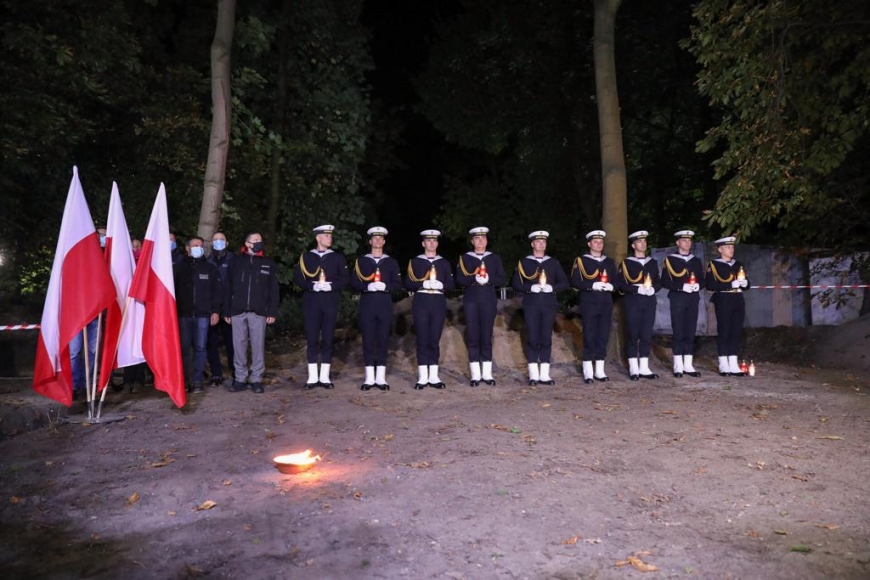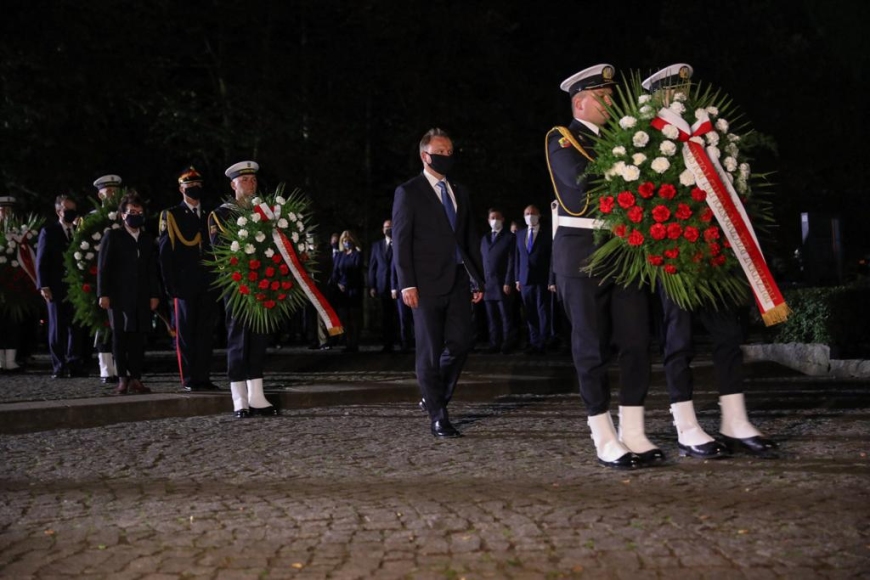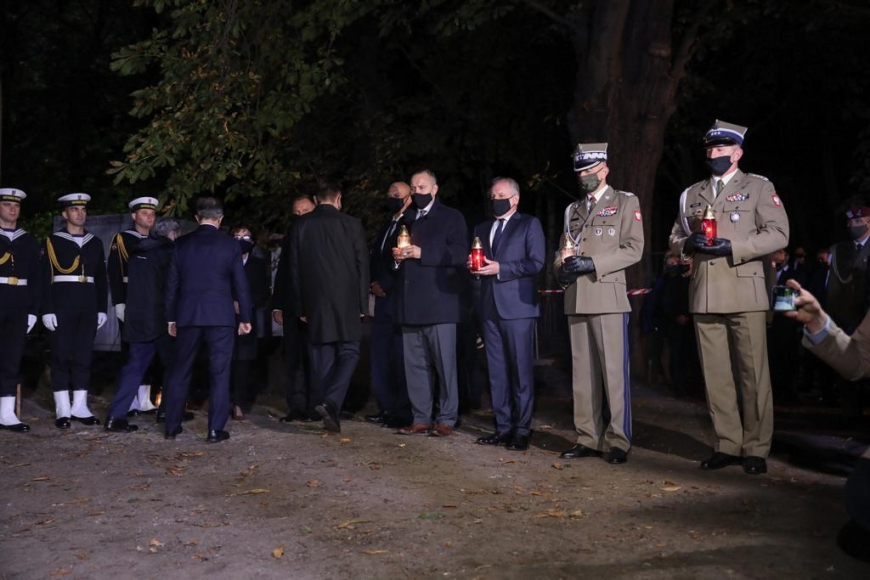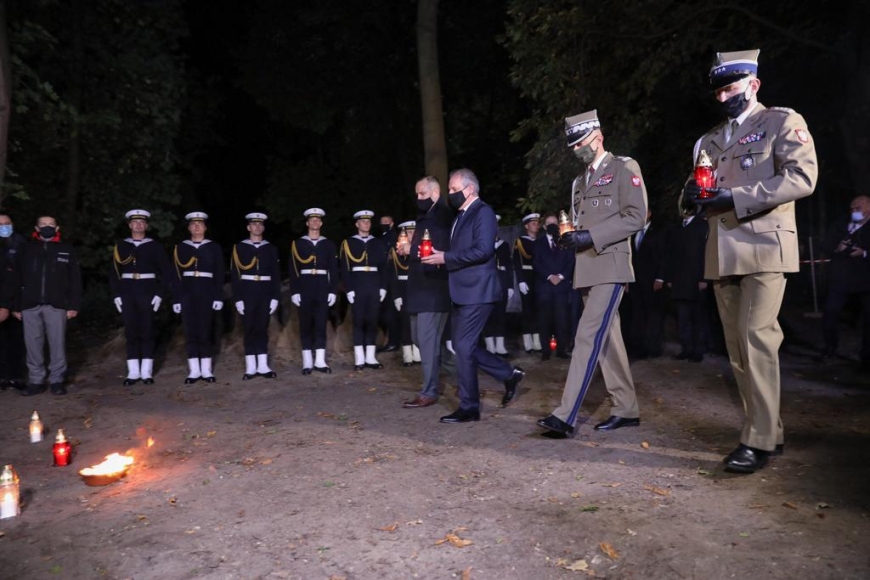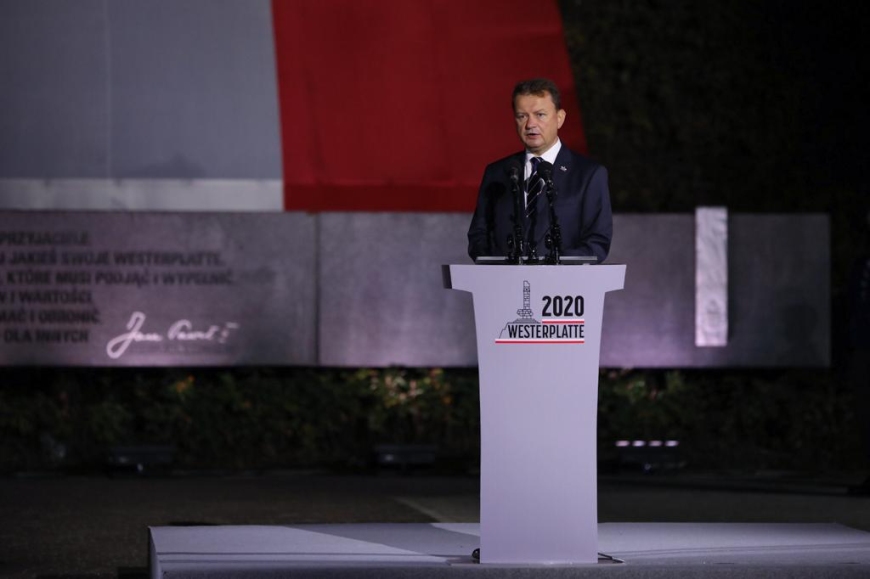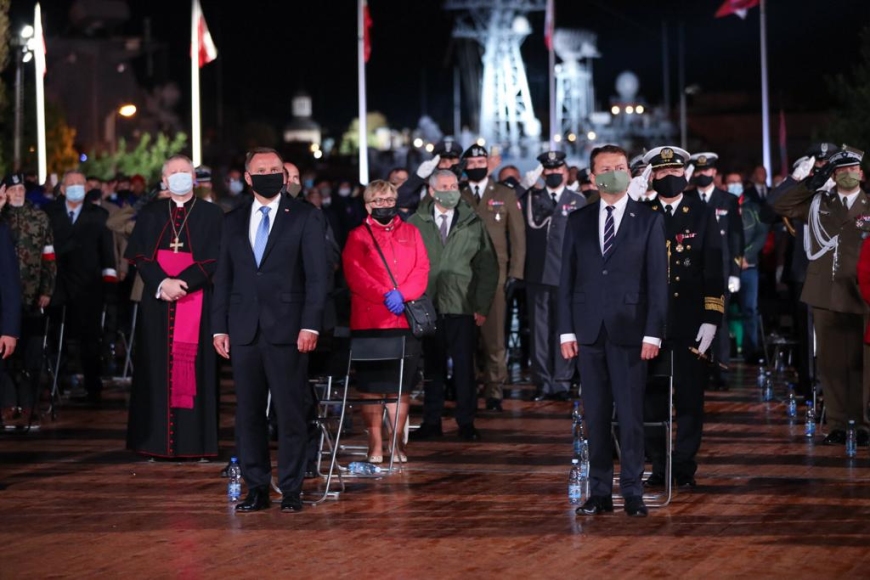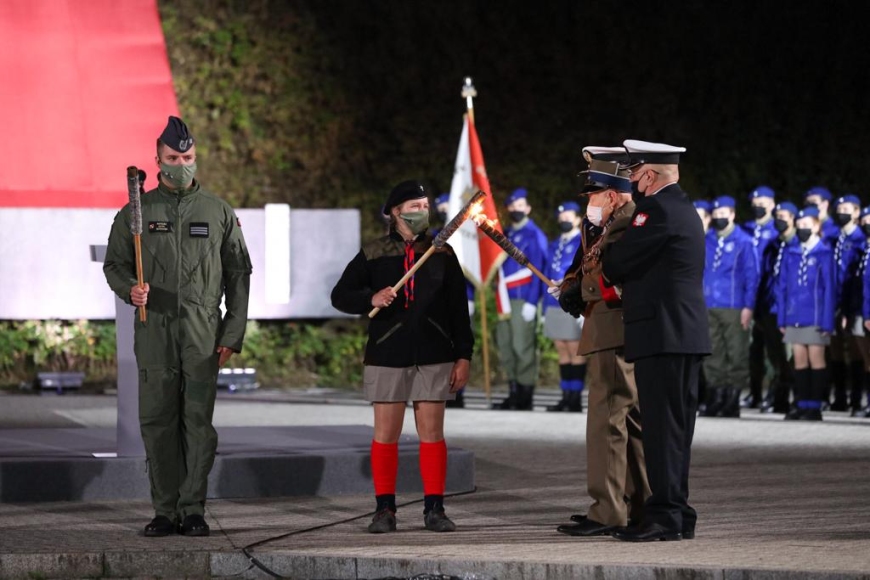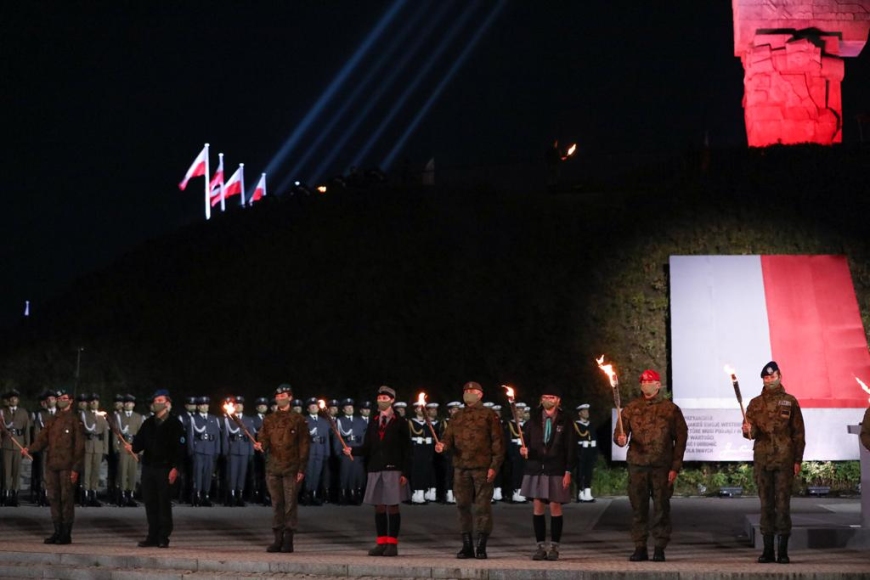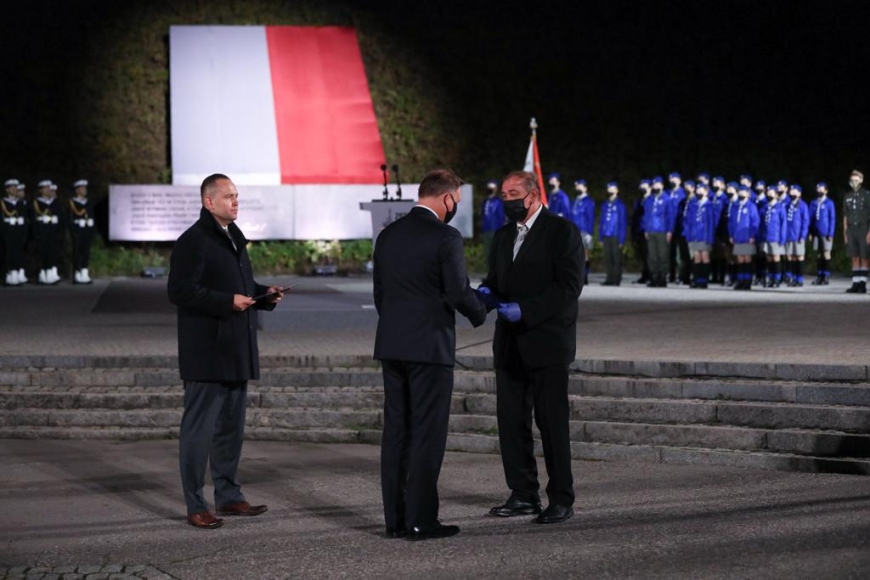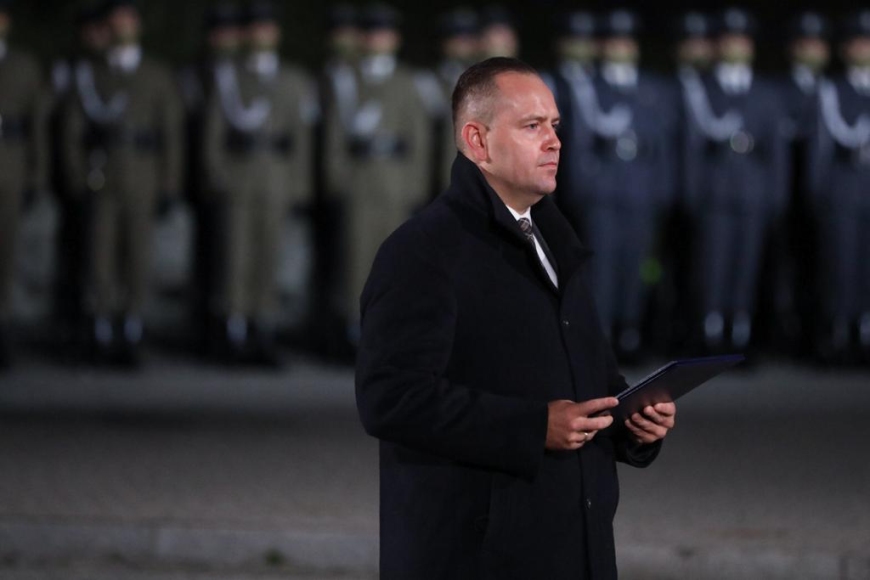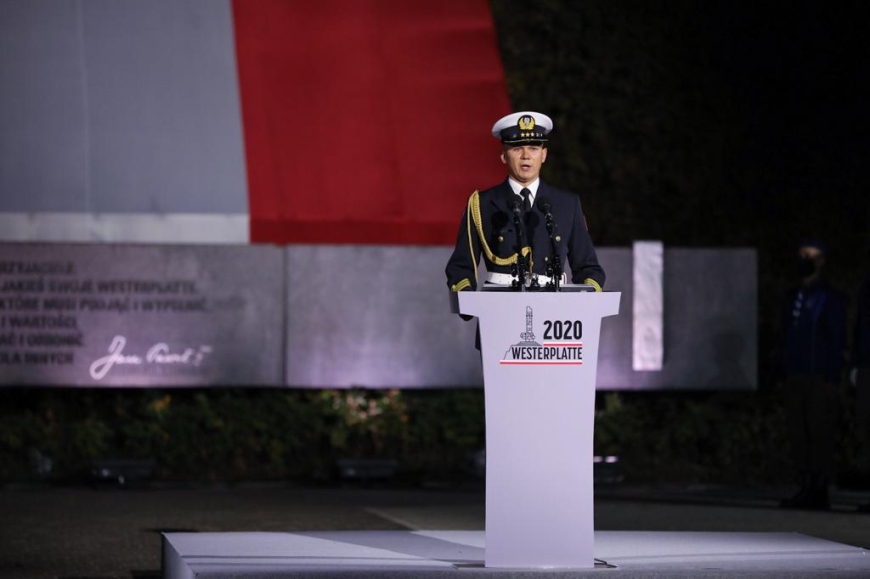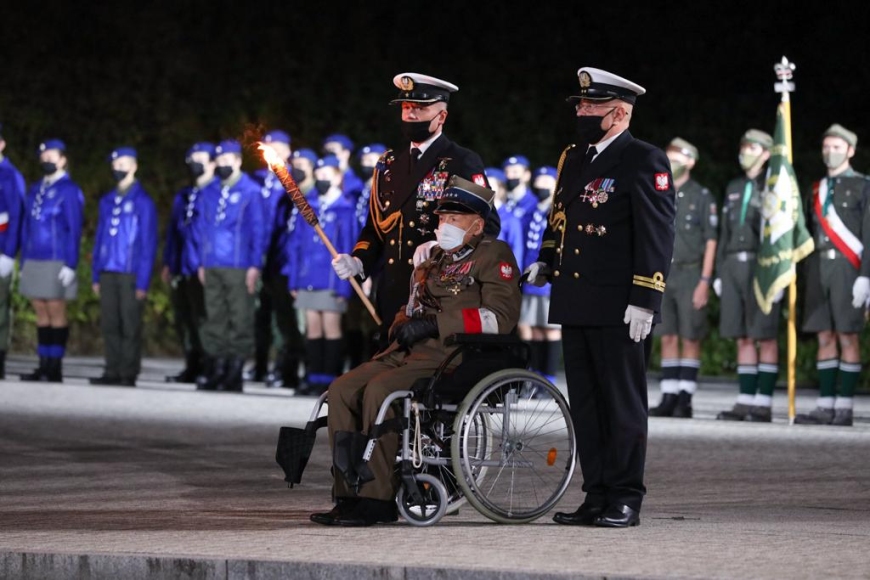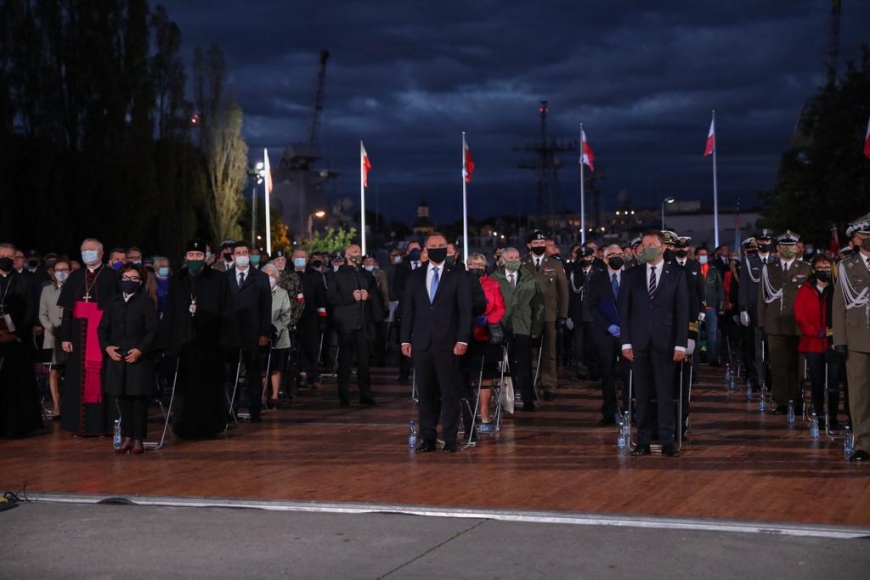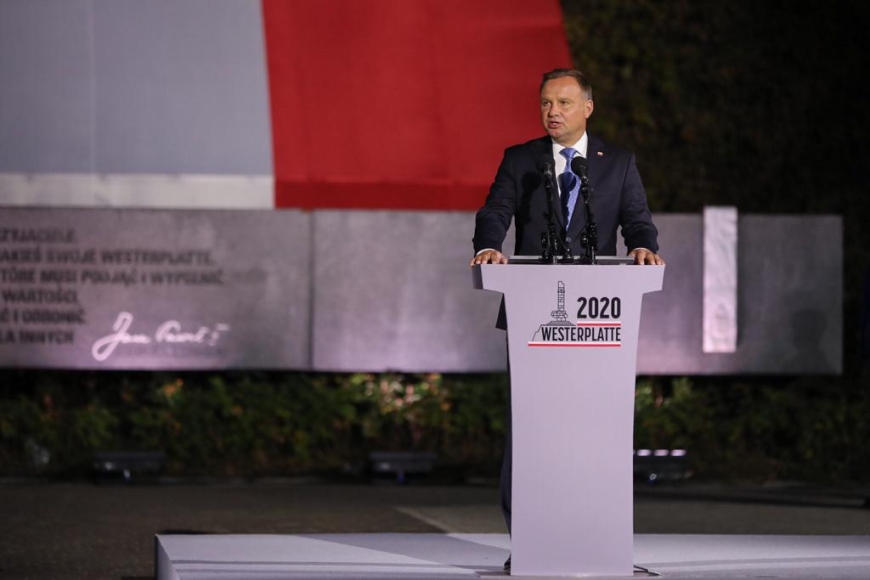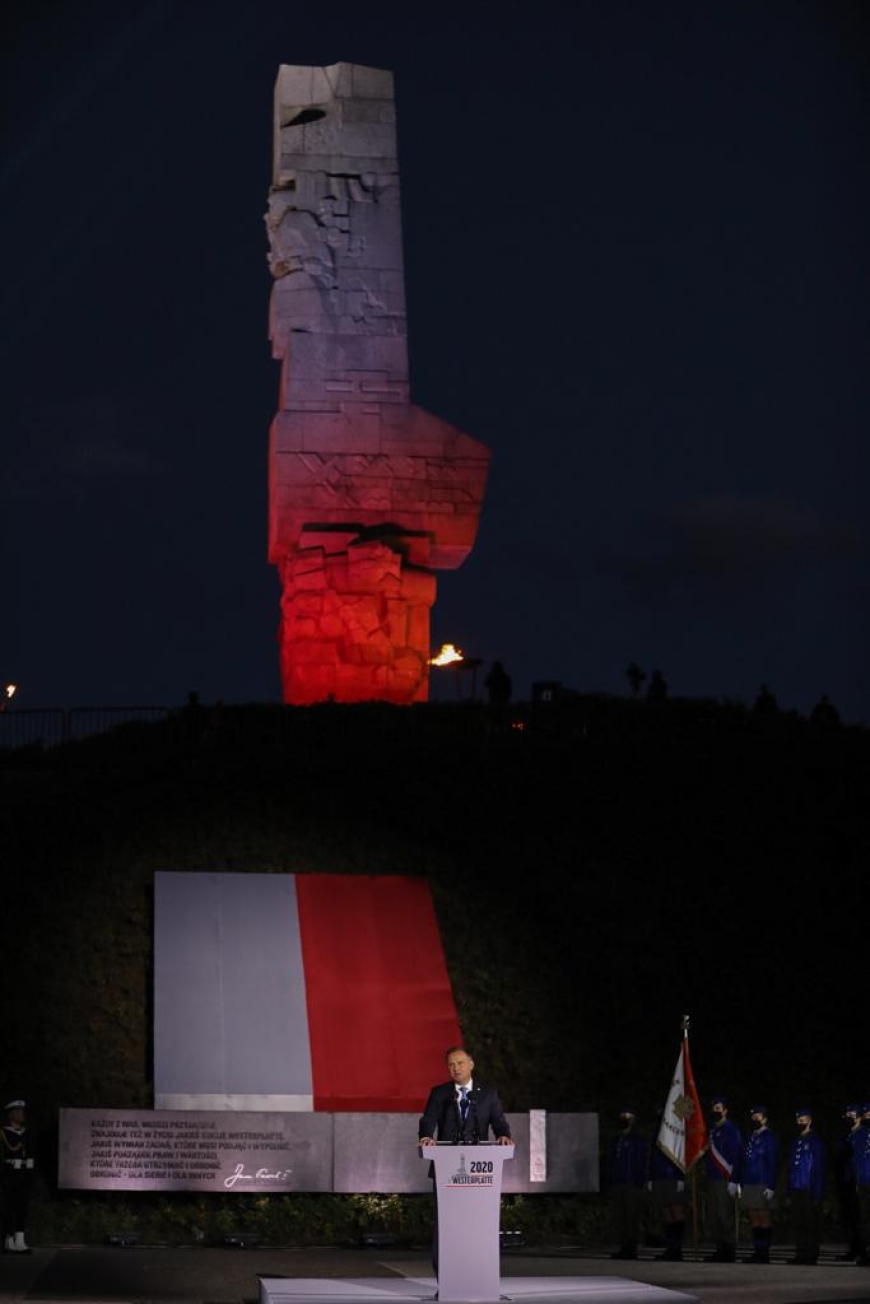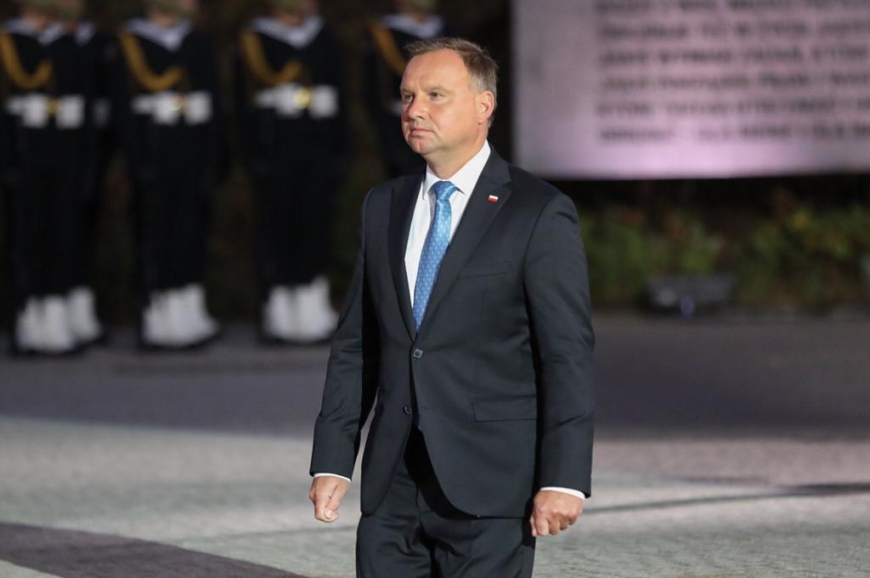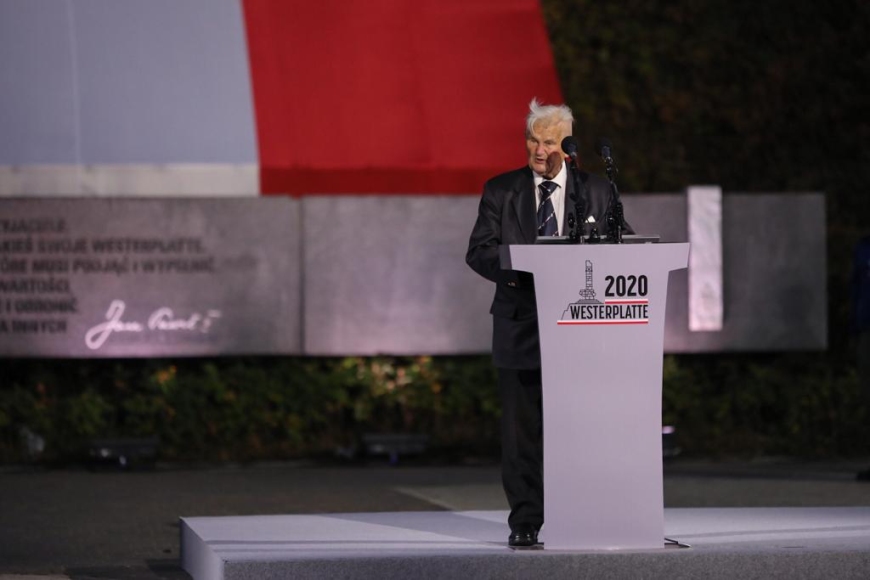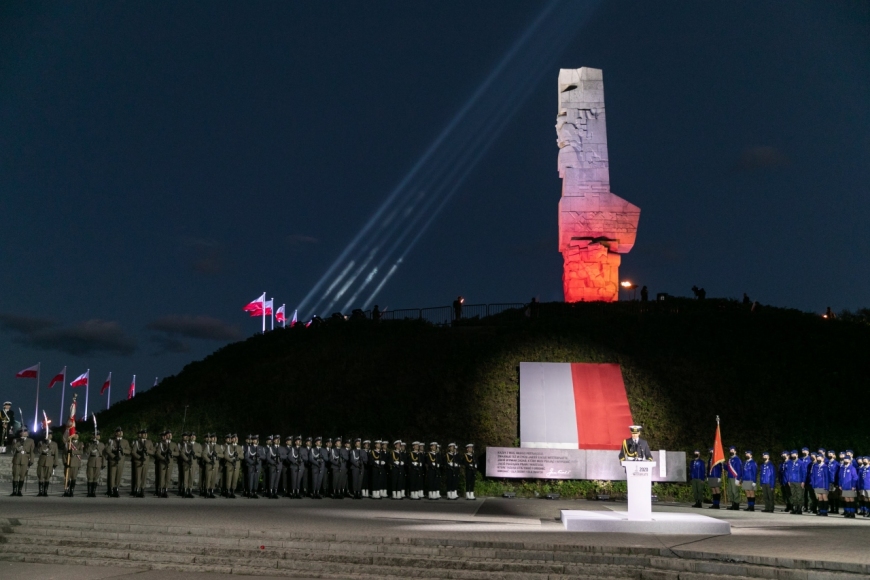President at Westerplatte: This site has to have dignity and must look dignified in appearance
Address of the President of The Republic of Poland Andrzej Duda delivered at Westerplatte, during the celebrations of the 81th anniversary of the outbreak of World War II:
Venerable Combatants and Dear Loved Ones of the Heroes who fell on the battlefield of Westerplatte, 81 years ago,
Honourable Madam Marshal of the Sejm,
Honourable Mr Marshal of the Senate,
Honourable Mr Prime Minister,
Honourable Ministers,
Honourable Members of Parliament,
Distinguished Generals,
Reverend Chaplains of the Polish Army,
Their Excellencies, Bishops,
Distinguished Officers,
Soldiers,
Distinguished Representatives of Regional Authorities,
Representatives of the City of Gdańsk Authorities,
All the distinguished Guests,
Ladies and Gentlemen!
World War II broke out 81 years ago – on 1 September 1939. It broke out against Poland as a result of the attack by Nazi Germany on our country. It broke out in several places, but two of them are particularly significant, two places where the attacks occurred almost simultaneously: here, at Westerplatte, where during an assault on the Polish Transit Depot, Polish soldiers were attacked, and at Wieluń, where German fighter pilots carried out air raids in a barbaric manner on a sleeping city, killing many civilians. Today, we pay tribute to all those who died - in both of these places at the same time. But I’m here, at Westerplatte, for several reasons.
First of all, many years later, today’s celebration commemorating the outbreak of World War II and the heroism of Polish soldiers, is being organized by the state authorities, and the main host is the Minister of National Defence. I would like to thank all those who have helped to organize today’s beautiful celebrations, their magnificent setting. I wish to express my heartfelt thanks to the Ministry, to the Museum of World War II, the soldiers, the scouts, the volunteers - all those whose work and efforts made it possible for today’s event to take place - and to take place in such a lofty and beautiful atmosphere.
It is a very significant occasion also in the light of the fact that I had a great honour to present to the families of the heroes who had fallen here, in the battle of Westerplatte, certificates confirming the discovery - after more than 80 years - of the remains of their loved ones – the heroes of those bygone days, the heroes of a free, sovereign, independent Poland. A moment ago, I was greatly moved to sing together with all of you – but first and foremost with all of our Soldiers who are present here - our national anthem that begins with the words “Poland has not yet perished, so long as we still live”.
How significant are these words, in the context of finding the remains of our soldiers here, on Westerplatte, when sung today by Polish soldiers in a free, sovereign, independent Poland, in memory of their predecessors who fell in battle defending their homeland. Poland exists. It continues. Also thanks to the heroism of the soldiers who defended Poland, our homeland, here, at this precise location. They defended it heroically for seven days, conducting their self-defence without a break, fighting bravely under the enemy’s fire. Those were truly great moments of the Polish military glory, memorable events, that became part not only of our own history, but definitely also part of the world’s military history.
This place is a great and wonderful symbol of the heroism of Polish soldiers, and - in terms of its global significance - it acts as a caution against imperialism and brutal policies that lead to war. It is a warning that a situation of this kind and such events should never happen again, for they left a colossal tragedy of nations in their wake, millions of people who had fallen in battle or had been murdered, resulted in the Holocaust and all the horrors that happened during World War II.
This place has to have dignity and must look dignified in appearance. I’ve just spoken to the archaeologists – the young people who found the remains of nine of our soldiers who had fallen at Westerplatte. They told me about their work, how they succeeded in their discovery of the remains. But it was with great anguish that they told me that the site where the remains - the mortal remains of our heroes, our Soldiers were located - was overgrown with weeds, full of litter.
I firmly believe that thanks to the fact that Westerplatte has been transferred under the management of the Museum of World War II; that there is now a specially dedicated entity within this museum, the Museum of Westerplatte and the War of 1939; that, thanks to the care shown by the staff of these institutions, those who serve their country through their work – looking at them, I know that this is precisely their attitude – that this place will not only be filled with dignity, but above all, it will be beautiful, frequently visited by young people and that tribute will be paid here, at the site where our soldiers have been buried. I believe that this burial ceremony will happen once all the soldiers have been identified.
As I have been told, it will probably be possible in the next two years, after the new cemetery has been established. It is very important to locate the remains of all those who had fallen fighting for their country. I am very pleased that this will be possible once again, here in Gdańsk. Once again, we have accompanied “Inka” and “Zagończyk” down the streets of Gdańsk; because it was here, at the Gdańsk Oksywie Cemetery, that we said our farewell to the officers of the Polish Navy whose remains were discovered, Polish Soldiers, who were murdered, because they served their country faithfully – until the very end.
I would like to thank all those who are involved in these initiatives. I would like to thank all the archaeologists and volunteers – those from Łączka and all the other places. I would like thank the Museum of World War II in Gdańsk, the Institute of National Remembrance, the Pomeranian Medical University in Szczecin – all those who participate in the discovery, retrieval, and identification process.
I thank you, because by being here with you, and finally participating, decades later, in the burial ceremony of the Polish heroes, I sincerely feel that we are fulfilling a great obligation and that together we are creating that special vision of Poland, that kind of Poland as it should be. The kind of Poland which searches for all its heroes in a tireless manner, even after more than 80 years. And which can honour their memory, pay tribute to them, and show its young people a great example of their patriotic attitude.
Let Westerplatte be a place – on the one hand – of our national pride and of tribute to those who fought and fell, but let it also become – as I have already mentioned – a warning to the world that such imperialist intentions should never be repeated, that there should never be another war again, that no one should ever brutally take another’s life – whether on the battlefield, or just simply through murdering them.
We pay tribute to our heroes, light the candles, hold a memorial roll call, listen to the honorary gun salute which this morning wakes up the Gdańsk residents, not with terror, but to mark the memory of the Fallen. May this memory never fade.
Honour and glory to the heroic defenders of Westerplatte! Honour and glory to all those who died in action during World War II! Honour and glory to our Heroes! Long Live Poland!
source: prezydent.pl
Źródło: prezydent.pl






